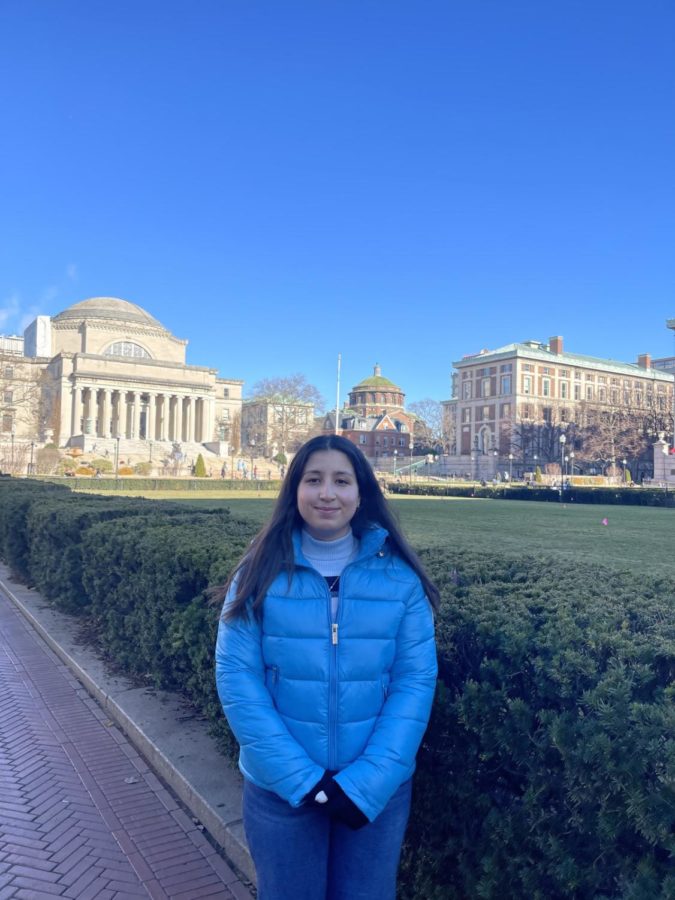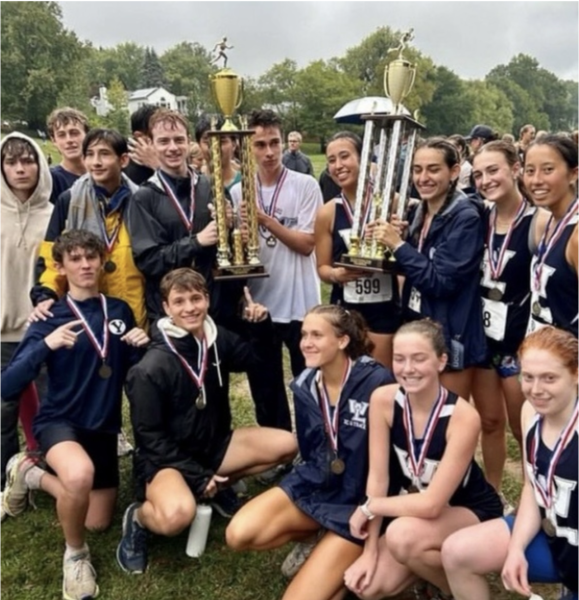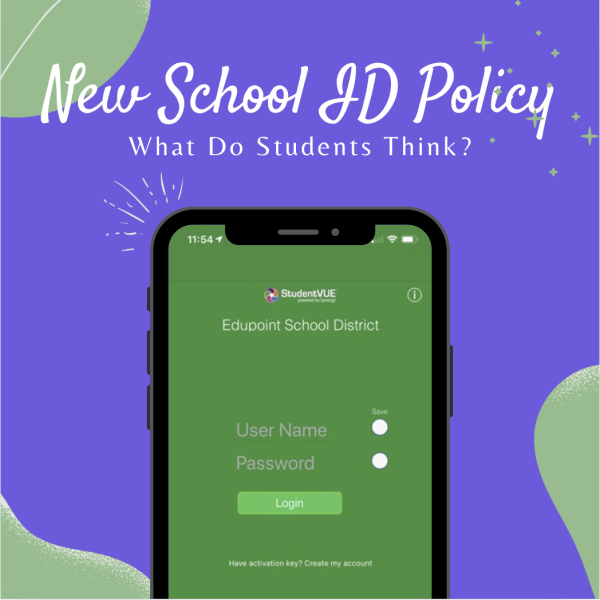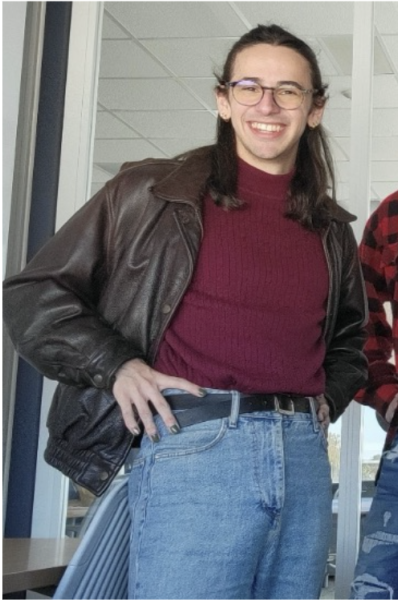QuestBridge scholars
Meet Meryem Khadrouni and Henessis Umacata, first-generation students attending Ivy League schools on a full scholarship
On Aug. 1, 2022, student inboxes were flooded with emails from colleges: The Common Application had opened and college application season officially began. For several students, however, the process of filling out applications had been going on for several months. This includes seniors Meryem Khadrouni and Henessis Umacata, who applied to college through the QuestBridge scholarship program.
“I started applying [to QuestBridge] in June, I think two weeks after we ended school,” Khadrouni said. “There were I believe 11 or 12 supplements just for the QuestBridge application. They’re really interesting questions, so I needed a lot of time to think about them.”
QuestBridge scholarships are full scholarships awarded to “high school seniors who have shown outstanding academic ability despite financial challenges”, according to the QuestBridge website. There are no strict cut-offs for academic or financial factors, but finalists are typically in the top 5 to 10% of their class and come from households earning less than $65,000 per year (for a household of four people). The scholarship covers everything including room and board, and textbooks.
“The main scholarship that I applied for was QuestBridge, so I did not do CommonApp, I did not do Coalition,” Khadrouni said.
Applying to QuestBridge takes commitment as it is a two-part process. First, an applicant applies to QuestBridge itself. Khadrouni did most of this application over the summer. In the fall, she found out she was a finalist and could continue with the application. This meant ranking up to 15 of the QuestBridge partner schools (there are 50 colleges and universities which work with and accept QuestBridge scholarships) and completing supplemental essays for those schools. An applicant is then bound to their top-ranked school which accepts them during the “match” process.
“You won’t find out if you get into any of the lower [ranked schools],” Umacata said. “You also want to be very careful because it’s binding. You could rank 15, but I was like ‘I am not 100% sure I want to go to these.’”
Umacata began preparing junior year through the QuestBridge College Prep Scholars program. This program gave her access to conferences and resources which acclimated her to the college application process, mainly because the application for the Prep Scholars program is similar to a college application.
“[In] Junior year you get a bunch of conferences,” Umacata said. “I did like a nine hour conference. [You] meet with them, they take you through the whole college application process, [give] tips and you talk to students and you meet admissions officers from different schools.”
Khadrouni moved to the United States from Morocco in 2013 and began learning English in the third grade. Previously, she was fluent in both Arabic and French. She still uses Arabic at home.
“The language barrier was a really big thing because we had different alphabets, even the way that we did division in Morocco was so much different than we did here,” Khadrouni said. “I started off [on] square one while I felt like everyone else was a little ahead. I was really lucky that the people at my elementary school were supportive. I was able to quickly learn a language [and] use the resources. I would say it did have a little bit of an effect, but if anything I think it was motivation.”
While her family has been influential throughout her life, Khadrouni relied mainly on herself and outside resources throughout the college application process.
“When I started applying [to college], deadlines were really, really early. [My parents] didn’t really understand that. Now, I’m already committed, I’m already done. In Morocco, you usually don’t commit until September of the year you’re going. [My parents] were trying to be helpful, of course, but all their tips really did not align with the college application,” Khadrouni said. “In Morocco, college is free, so financial aid applications didn’t make sense. The supplements, in Morocco you just get in through, I think, letters of recommendation and then your grades. So [my parents] tried to be helpful, but I think I felt like I was teaching myself and then teaching them at the same time… My sister will have a better experience.”
Mr. James Sample, the schools equity and excellence coordinator, was a key resource for Khadrouni throughout the application process. She also credits her success to her teachers and her own methods of organization.
“My interactions with teachers are very important, I need to have a good teacher in order to do well in class,” Khadrouni said. “I [try] to find two or three teachers each year that I think are really supportive, and that influences how I do in that class and what I learn.”
Khadrouni will be attending Columbia University in the fall and majoring in engineering. Her interest in engineering stems from her experience living in and visiting Morocco.
“[In my application], I really centered my identity and the fact that I was born in Morocco onto the reason why I want to do civil engineering,” Khadrouni said. “I just talked about different architecture, structural issues and just stuff that I see. Other than my parents and my little sister, everyone else in my family lives in Morocco, so I go there every year and I see a lot of differences. I just kind of told that story, and how that led to why I want to pursue engineering.”
Umacata credits her standout application partly to time spent volunteering (at food banks and tutoring) and school involvement through Spanish Club. According to Umacata, several teachers, including English teacher Mr. Philip Krauth and anthropology teacher Mr. Daniel Moses, also contributed to her academic development.
“[Mr Krauth] wrote my rec letter [and] he strengthened my writing ability so much. So, when I wrote my application, I could really convey [my] ideas,” Umacata said. “Mr. Moses…his whole class just made me a lot more confident, and [it] made me know exactly what I wanted to study, which is pre-law.”
For Umacata, the language barrier meant that she relied on outside sources as she went through the process.
“My parents did not go to college in the US or in their own countries,” Umacata said. “My sister does go to college, but the process was definitely very difficult for her. My parents couldn’t help me at all… [They could not] even read my essay, just because if you translated it to Spanish it didn’t have the same meaning. So I had to really find sources somewhere else.”
She used Mr. Sample and other resources to aid the application itself. When it got overwhelming, however, Umacata turned to a friend who was also going through an untraditional process: applying to schools internationally.
“I have this one friend [and] we literally would just talk about college all the time,” Umacata said. “[We would] help each other out [and] whenever we were stressed we’d just rant to each other.”
Umacata will attend the University of Pennsylvania (UPenn) this fall on a pre-law track. She chose the school for several reasons including academic rigor and essay topics.
“I wanted a school that had very rigorous courses, [and] that would challenge me and surround me with individuals I felt like knew what they wanted as well,” Umacata said. “[I looked at] the essays that [each school] made me write, I was like, ‘Okay, this is what they prioritize and this is what they’re looking for in their students,’ so if I matched that or if it matched my values, then that’s great.”
Umacata’s favorite UPenn supplement was a thank you letter that she wrote to an old elementary school teacher who played a pivotal role in her life. He was also born and raised in Philadelphia, Pennsylvania, the city of which Umacata is looking forward to being a part of next year.
“I’m looking forward to just getting some independence, being away from home,” Umacata said. “I’m definitely still going to need my family a lot, but I think just being in a different community [and] being exposed [to new things]…is definitely what drew me to [the school].”
For future QuestBridge scholars, Umacata recommends being genuine.
“[Students should] make sure they’re passionate and true to themselves and whatever they want to do,” Umacata said. “[They should] not worry so much about the schools that they’re going to get into because I think everyone ends up where they’re supposed to be. It’s easy to say, but it’s really hard to believe in the moment.”











